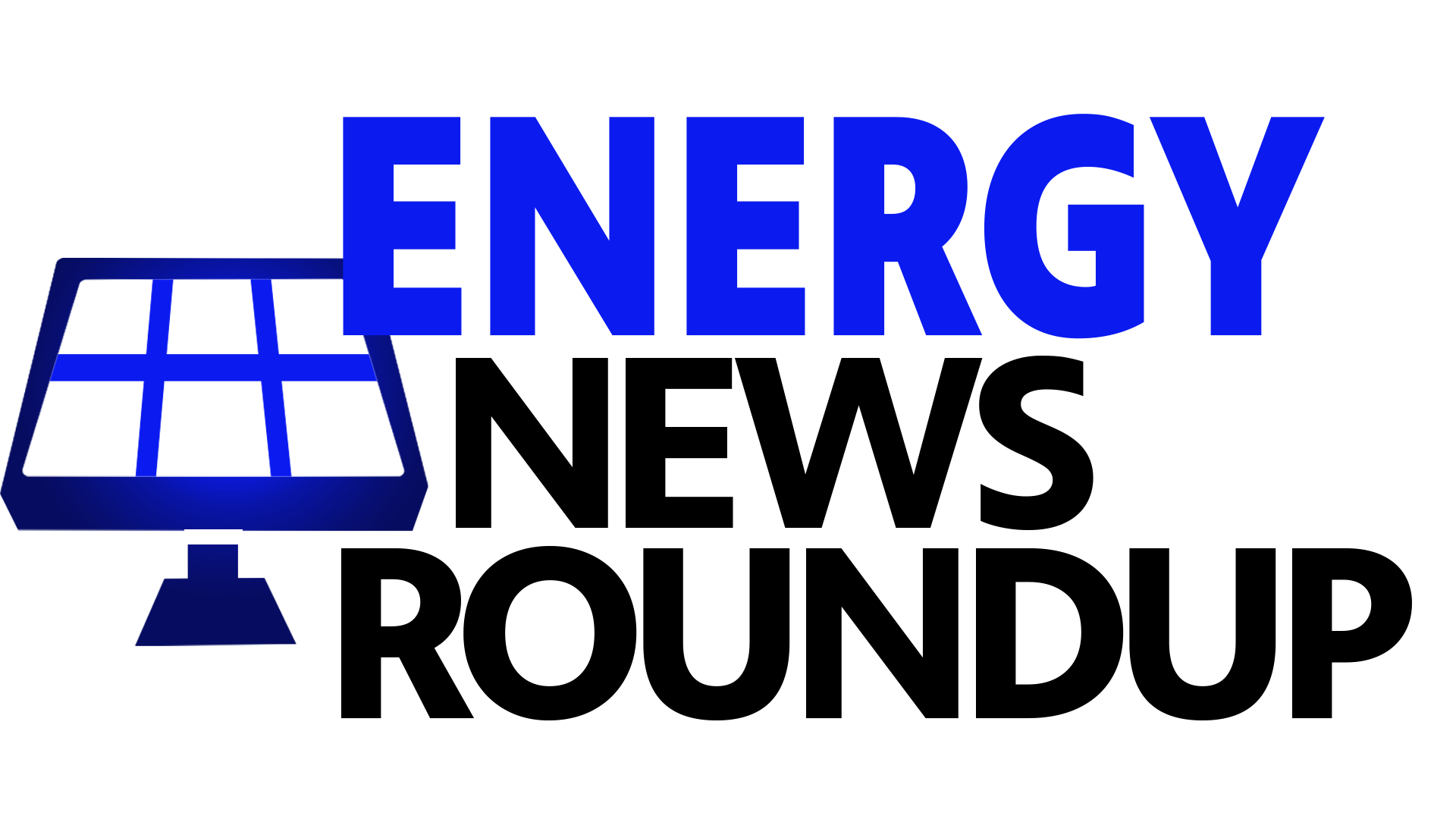
Keep up with energy-related developments in the Great Lakes area with Great Lakes Now’s biweekly headline roundup.
Click on the headline to read the full story:
Illinois
With a 100% carbon-free electricity target by 2045, Illinois must now grapple with the complexities over how exactly to reach that goal.
- Black-owned companies seek to close electric transportation gaps in Chicago — Energy News Network
A pair of hyperlocal ride-hailing startups in Chicago are positioning themselves to better serve predominantly Black neighborhoods that are underserved by traditional ride-hailing services and public transit.
Illinois is so far the only state that has tried to address “cultural dislocation” related to its energy transition from coal, according to a report from a clean energy think tank.
Indiana
- NIPSCO to close ash ponds and discuss assessment of corrective measures for groundwater at R.M. Schahfer Generating Station — Kankakee Valley Post News
NIPSCO will soon begin closing three coal ash ponds at a northwestern Indiana coal plant and detail corrective measures to protect groundwater from contamination.
- Gary activists claim proposed Fulcrum bioenergy plant unproven — Chicago Tribune
Environmental advocates in Gary, Indiana, raise environmental concerns about a proposed bioenergy plant along Lake Michigan.
- Electric vehicle charging network plans approved by US DOT; Indiana to get $100 million — Times of Northwest Indiana
Federal transportation officials approve Indiana’s nearly $100 million electric vehicle charging network plan, which will support fast-chargers along all of the state’s interstate highways.
- New state law allows for underground storage of captured carbon in Indiana – Times of Northwest Indiana
Indiana Gov. Eric Holcomb signs legislation creating a regulatory framework for companies seeking to store carbon emissions underground.
Michigan
- Michigan regulators order DTE, Consumers to increase transparency around electric service reliability — Energy News Network/Planet Detroit
The Michigan Public Service Commission, which regulates investor-owned utilities, found distribution plans from DTE Electric and Consumers Energy were insufficient and ordered both utilities to implement a range of actions to increase transparency around distribution and maintenance plans.
- Nuclear energy bill receives state Senate hearing — Michigan Radio
A bill before a Michigan Senate committee would require state regulators to commission a feasibility study on nuclear energy. That study would look at the economic and environmental impacts of generating nuclear power in the state.
- Michigan’s Largest Utility Faces Pushback on Debt Sales and Shut-Offs as Company Asks for Rate Hike — ProPublica
As DTE Energy pushes for a rate increase, the state is taking a closer look at its sale of customer debt to collection agencies. The company’s use of shut-offs and response to outages are also drawing criticism.
The Electreon Company signed a five-year agreement with the state of Michigan to research a potential road network that charges electric vehicles as they drive.
Over the past few years, corporate demand for cleaner energy to power their operations has directly led to the development of large-scale wind and solar projects across Michigan. Through voluntary “green pricing” programs created under 2016 statewide energy reforms, utilities regulated by the Michigan Public Service Commission have reported exponential growth in the amount of customer-purchased renewable energy.
Michigan regulators recently approved a Consumers Energy settlement that will create a community solar pilot program and could allow for the development of a landfill solar project in Grand Rapids.
Minnesota
- Bloom Energy to produce emissions-free hydrogen at Xcel Energy’s Prairie Island nuclear plant — Utility Dive
A company plans to begin producing emissions-free hydrogen at an Xcel Energy nuclear plant in Minnesota starting in 2024.
- How planting trees fights racial inequity and climate change in Twin Cities’ poorest neighborhoods — Star Tribune
Residents in neighborhoods with less tree cover face hotter summers, higher bills and more health complications. Minneapolis-St. Paul nonprofits are working to address a longstanding inequity by planting more trees in disadvantaged neighborhoods to lower health risks and combat rising electricity bills.
- “It’s coming full circle”: State leaders look to Indigenous communities for climate solutions — CBS Minnesota
Members of Minnesota’s Department of Natural Resources, Pollution Control Agency and Department of Transportation are turning to indigenous communities throughout the state for climate solutions. During ‘Climate Week,’ representatives from the state agencies plan to visit 11 Native communities.
- U.S. judge rejects last challenge to Enbridge’s line 3 — Star Tribune
A federal judge rejects claims by tribes and environmental groups in Minnesota that the U.S. Army Corps of Engineers failed to adequately review Enbridge’s Line 3 pipeline expansion plan.
Ohio
A northern Ohio county will take at least another month to vote on whether to restrict solar and wind energy projects as allowed under a recent state law.
- The Choice for Rural Officials: Oppose Solar Power or Face Revolt — Inside Climate News
Solar energy opponents in rural Ohio often outnumber supporters of large-scale projects during public meetings and demand local officials to fall in line and oppose projects.
Electric vehicle startup Lordstown Motors begins producing electric trucks at its Ohio manufacturing plant.
- Natural gas from local landfills and cow manure used at Ohio fuel station to power Amazon’s fleet — WYSO
Ohio has become the first state to host a renewable natural gas fueling station designed to support Amazon’s heavy-duty trucks. The renewable natural gas station in Groveport is operated by Clean Energy Corp. and is the first of about 19 that will be placed around the country for Amazon.
- Ohio utilities ranked among the worst on fossil fuel use — Ohio Capital Journal
Three Ohio utilities rank among the worst in the U.S. for transitioning from fossil fuels, likely because the state’s power plant bailout law at the center of a corruption scandal provided ratepayer subsidies to coal plants.
- FirstEnergy fights to keep records tied to bribery scheme from the public — Ohio Capital Journal
State regulators will soon consider FirstEnergy’s request to shield from the public 39 documents related to payments it made to top government officials for favorable legislative and regulatory treatment.
Ontario
- Program helps businesses clean up their carbon footprint — Northern Ontario Business
A Sudbury environmental organization is rolling out the second intake of a successful program to help businesses and organizations reduce their carbon footprint. The Green Economy North program provides participant organizations with the tools to measure their greenhouse gas emissions and the knowledge on how to manage it through carbon reduction.
- Tire recycling initiative kicks off in Sudbury — Northern Ontario Business News
B2B Industrial will repurpose old tires for use in the mining, construction, forestry, military, fishing and car repair industries thanks to a novel partnership in Sudbury.
- Hydro One launches partnership model with First Nations on power line construction — Northern Ontario Business News
In partnership with First Nation leaders from across Ontario, Hydro One announced its new industry-leading equity partnership model on new capital transmission line projects with a value exceeding $100 million. Hydro One’s model will offer First Nations a 50 per cent equity stake in all future large-scale capital transmission line projects.
- Feds release framework for using Indigenous knowledge in project reviews — Northern Ontario Business News
A new federal framework will be used to assess projects such as mines, dams, and liquefied natural gas facilities. The Indigenous Knowledge Policy Framework for Project Reviews and Regulatory Decisions is the first step in the development of guidance specific to Indigenous knowledge in assessing projects impacting lands and resources, and in the preparation of regulatory decisions.
- Lakehead U team will research new offshore wind systems — Northern Ontario Business News
A Lakehead University team in Thunder Bay has been awarded $127,000 in research funding from the Ontario government to research next-generation offshore wind systems. The Lakehead initiative aims to reduce the cost and size of wind systems while improving their efficiency and reliability.
Wisconsin
A federal appeals panel hears arguments for and against a controversial transmission line through southwestern Wisconsin that could influence future permitting decisions.
- Amid soaring energy costs, public pushes back against We Energies’ proposed rate hike — Wisconsin Public Radio
Wisconsin residents push back on We Energies’ latest electric and gas rate increase proposal given home heating costs are expected to significantly increase this winter.
National
The number of U.S. schools generating solar power has more than doubled over the last seven years as districts seek long-term cost savings.
- At a Global Conference on Clean Energy, Granholm Announces Billions in Federal Aid for Carbon Capture and Emerging Technology – Inside Climate News
U.S. Energy Secretary Jennifer Granholm announces billions of dollars in federal aid for carbon capture projects while environmental advocates criticize the technology as a diversion from renewables.
A study finds that among 47 large U.S. companies, only Xcel Energy tied its CEO pay to measurable greenhouse gas emission reductions.
From Arizona to Maine and beyond, a new generation of Indigenous entrepreneurs, activists and government leaders are making strides — and money — with clean energy.
Catch more news at Great Lakes Now:
Energy News Roundup: Line 3 protests, renewable energy efforts growing
Energy News Roundup: New climate laws impact states, energy bill assistance in Illinois




